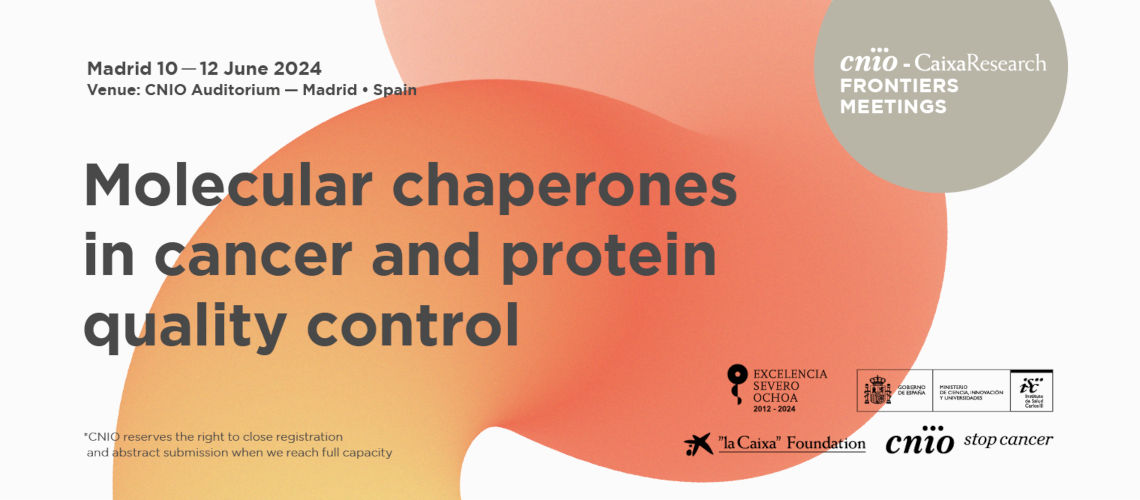Ad Hoc Seminar 30/11/2023
Iban Ubarretxena Belandia
Cryo-EM studies on DNA polymerases and Protein Chaperonins
Women in Science Office Seminar 20/11/2023
Ana Maiques
Revolutionizing brain therapies from Barcelona to Boston – a story of entrepreneurship in the healthcare sector (this seminar will be held in English)
Distinguished Seminar 17/11/2023
Joseph Takahashi
Role of Circadian Clocks in Healthspan and Lifespan in Mice
Ad Hoc Seminar 13/11/2023
David Vilchez
Cold temperature delays aging and proteostasis collapse
Doctoral Thesis 13/11/2023
Javier Lanillos
NGS data-driven pharmacogenomics: preemptive germline testing and renal cell carcinoma predictive response biomarkers
Doctoral Thesis 03/11/2023
Pablo Valledor
Ubiquitin and SUMO in DNA replication: from molecular studies to age-related pathologies
Distinguished Seminar 03/11/2023
Walid Khaled
Tumour Initiation Through Aberrant Differentiation: Lessons from Single Cell Genomics
Distinguished Seminar 27/10/2023
Marta María Alonso Roldán
Locking TIM3 as a therapeutic strategy for pediatric diffuse midline Glioma
Distinguished Seminar 20/10/2023
Luis A. Diaz
Immunotherapy and mismatch repair deficiency
Ad Hoc Seminar 10/10/2023
Faiyaz Notta
Phenotypes of pancreatic cancer
Doctoral Thesis 10/10/2023
Raúl Sánchez
Functional study of mutations in TRF1 and POT1 and their impact on telomere biology and tumorigenesis
Ad Hoc Seminar 09/10/2023
Julio Sáez-Rodríguez
Knowledge-based machine learning on multi-omics to dissect cancer mechanisms


